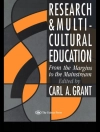Liminality has the potential to be a leading paradigm for understanding transformation in a globalizing world. As a fundamental human experience, liminality transmits cultural practices, codes, rituals, and meanings in situations that fall between defined structures and have uncertain outcomes. Based on case studies of some of the most important crises in history, society, and politics, this volume explores the methodological range and applicability of the concept to a variety of concrete social and political problems.
Cuprins
List of Figures
Introduction: Liminality and the Search for Boundaries
Harald Wydra, Bjørn Thomassen, and Agnes Horvath
PART I: FRAMING LIMINALITY
Chapter 1. Liminality and Experience: Structuring transitory situations and transformative events
Arpad Szakolczai
Chapter 2. Thinking with Liminality: To the Boundaries of an Anthropological Concept
Bjørn Thomassen
PART II: LIMINALITY AND THE SOCIAL
Chapter 3. Inbetweenness and Ambivalence
Bernhard Giesen
Chapter 4. The Genealogy of Political Alchemy: the technological invention of identity change
Agnes Horvath
Chapter 5. Critical Processes and Political Fluidity: a Theoretical Appraisal
Michel Dobry
Chapter 6. Liminality and the Frontier Myth in the Building of the American Empire
Stephen Mennell
Chapter 7. On the Margins of the Public and the Private: Louis XIV at Versailles
Peter Burke
PART III: LIMINALITY AND THE POLITICAL
Chapter 8. Liminality, the execution of Louis XVI and the rise of terror during the French Revolution
Camil Roman
Chapter 9. In Search of Antistructure: The Meaning of Tahrir Square in Egypt’s Ongoing Social Drama
Mark Allen Peterson
Chapter 10. Liminality and Democracy
Harald Wydra
Chapter 11. Liminality and Postcommunism: The Twenty-First Century as the Subject of History
Richard Sakwa
Chapter 12. The Challenge of Liminality for International Relations Theory
Maria Malksoo
Notes on Contributors
Index
Despre autor
Harald Wydra is a Fellow of St Catharine’s College at the University of Cambridge, where he has taught politics since 2003, and is a co-founder and editor of the journal International Political Anthropology. His books include Communism and the Emergence of Democracy (Cambridge University Press, 2007), Democracy and Myth in Russia and Eastern Europe (co-edited with Alexander Wöll, Routledge, 2008), and Politics and the Sacred (Cambridge University Press, 2015).












